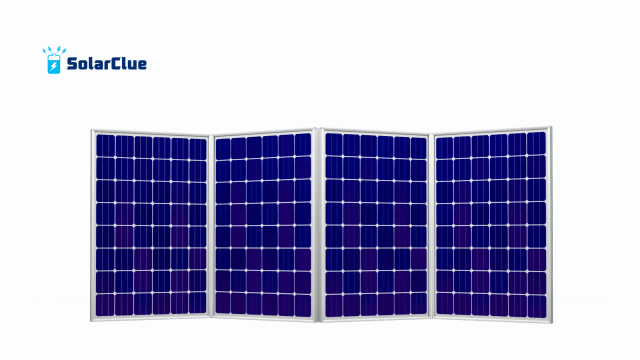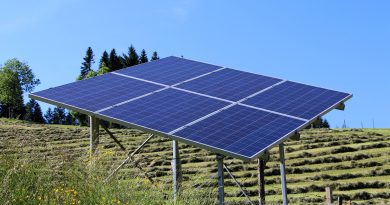Best Solar Panel for Rooftop Homes: Complete Buyer Guide
Electricity bills are rising every year, and homeowners across India are searching for ways to cut costs. At the same time, concerns about climate change are encouraging people to embrace eco-friendly solutions. One of the most effective answers lies on your rooftop—solar panels. By capturing free sunlight and turning it into electricity, a rooftop solar system can help households achieve energy independence while reducing monthly expenses.
But with so many brands, technologies, and government incentives in the market, the common question remains: Which is the best solar panel for my home? This guide breaks down everything you need to know before investing, from panel types to efficiency, warranties, costs, and real-life considerations.
Table of Contents
- 1 Why Rooftop Solar Is the Future of Energy
- 2 What Is a Rooftop Solar Panel System?
- 3 Types of Solar Panels for Rooftop Homes
- 4
- 5 Key Factors to Consider Before Buying the Best Solar Panel
- 6 Cost of Rooftop Solar Panels in India
- 7 Installation Process: Step by Step
- 8 Advantages of Rooftop Solar Panels
- 9 Common Myths About Solar Panels
- 10 Real-Life Case Study
- 11 Maintenance Guide
- 12 FAQs
- 13 Conclusion
Why Rooftop Solar Is the Future of Energy
Rooftop solar systems are becoming mainstream for three main reasons:
-
Rising Electricity Costs: Families can save up to 70% annually.
-
Government Subsidies: Central and state programs make adoption affordable.
-
Environmental Benefits: Every kilowatt of solar installed prevents carbon dioxide emissions.
Installing the best solar panel for your needs ensures maximum return on investment, both financially and environmentally.
What Is a Rooftop Solar Panel System?
A rooftop solar system is a set of solar panels mounted on your roof that converts sunlight into electricity. These systems can be:
-
Grid-Tied: Connected to the utility grid. Excess power goes back, and you earn credits through net metering.
-
Off-Grid: Works independently with battery storage, useful in remote areas.
-
Hybrid: Combines both models for flexibility.
Your choice of system depends on your energy needs, budget, and local electricity availability.
Types of Solar Panels for Rooftop Homes
1. Monocrystalline Solar Panels
-
Made from a single crystal of silicon.
-
Efficiency: 18–22% (highest).
-
Pros: Space-efficient, long lifespan.
-
Cons: More expensive.
-
Best for: Homes with limited rooftop space.
2. Polycrystalline Solar Panels
-
Made from multiple silicon fragments melted together.
-
Efficiency: 15–18%.
-
Pros: Affordable, reliable.
-
Cons: Requires more space for the same output.
-
Best for: Homes with larger rooftops and lower budgets.
3. Thin-Film Solar Panels
-
Lightweight and flexible.
-
Efficiency: 10–12%.
-
Pros: Easy installation, cheaper upfront cost.
-
Cons: Less durable, shorter lifespan.
-
Best for: Temporary or commercial setups.
Key Factors to Consider Before Buying the Best Solar Panel
1. Efficiency
Higher efficiency panels generate more power in less space. For Indian homes, >18% efficiency is ideal.
2. Warranties
Look for at least 25 years of performance warranty. Good brands offer both product and performance warranties.
3. Brand Reputation
Top Indian brands include Tata Power Solar, Vikram Solar, and Waaree, while global leaders like Trina and JA Solar also have strong presence.
4. Cost vs ROI
Don’t just focus on upfront cost. A slightly expensive panel with better durability may save more in the long run.
5. Space and Roof Condition
Assess whether your rooftop is strong enough to support panels. Shade-free areas are preferred.
Cost of Rooftop Solar Panels in India
-
3 kW system: ₹1.5–2 lakh (suitable for small families).
-
5 kW system: ₹2.5–3.5 lakh (medium households).
-
10 kW system: ₹5–6 lakh (large homes or small businesses).
These costs include panels, inverters, and installation. Government subsidies can reduce prices by 20–40%.
Installation Process: Step by Step
-
Site Survey: Experts check your rooftop size and sunlight availability.
-
System Design: Customized based on energy needs.
-
Installation: Panels are mounted with structures, wired to inverters and meters.
-
Inspection & Approval: Local authorities or DISCOM verify compliance.
-
Activation: System starts generating electricity, and you enjoy savings.
Advantages of Rooftop Solar Panels
Financial
-
Save thousands of rupees every month.
-
Protect against rising electricity tariffs.
-
Increase property resale value.
Environmental
-
Each 1 kW system saves 1.5 tons of CO₂ annually.
-
Contributes to India’s renewable energy goals.
Practical
-
Low maintenance (just occasional cleaning).
-
Long lifespan (25–30 years).
-
Works even during power cuts with hybrid or off-grid systems.
Common Myths About Solar Panels
Myth 1: Solar panels don’t work on cloudy days.
Fact: They generate power, though slightly less, as they use diffused sunlight.
Myth 2: Rooftop solar is too expensive.
Fact: With subsidies and falling costs, payback is achieved in 3–5 years.
Myth 3: Panels damage roofs.
Fact: Professional installation ensures no roof damage, and panels may even protect roofing from weather.
Real-Life Case Study
A Bengaluru family installed a 5 kW rooftop solar system for ₹3 lakh. With monthly bills of ₹8,000, their costs dropped to just ₹2,000. Within four years, the system paid for itself. With a 25-year lifespan, they now enjoy nearly free electricity for decades.
Maintenance Guide
-
Clean panels once every 15–20 days to remove dust.
-
Monitor performance using a solar monitoring app.
-
Schedule professional checks annually.
FAQs
Q1. Which is the best solar panel for Indian homes?
Monocrystalline panels are best due to higher efficiency and space-saving design.
Q2. How long do solar panels last?
On average, 25–30 years.
Q3. Can rooftop solar panels power an entire home?
Yes, with proper system sizing and battery storage if needed.
Q4. Do I need permission to install rooftop solar?
Most systems require DISCOM approval, especially for grid-connected setups.
Q5. How much space does a 1 kW solar panel system need?
Approximately 100 sq. ft.
Conclusion
The best solar panel for your rooftop depends on your energy needs, budget, and space availability. By investing in rooftop solar, you’re not only cutting electricity bills but also contributing to a cleaner environment and energy independence. With government support, reliable technology, and falling prices, there’s never been a better time to go solar.
To explore more about solar panels and how they can transform your home, visit solarclue.com and blog.solarclue.com today.





